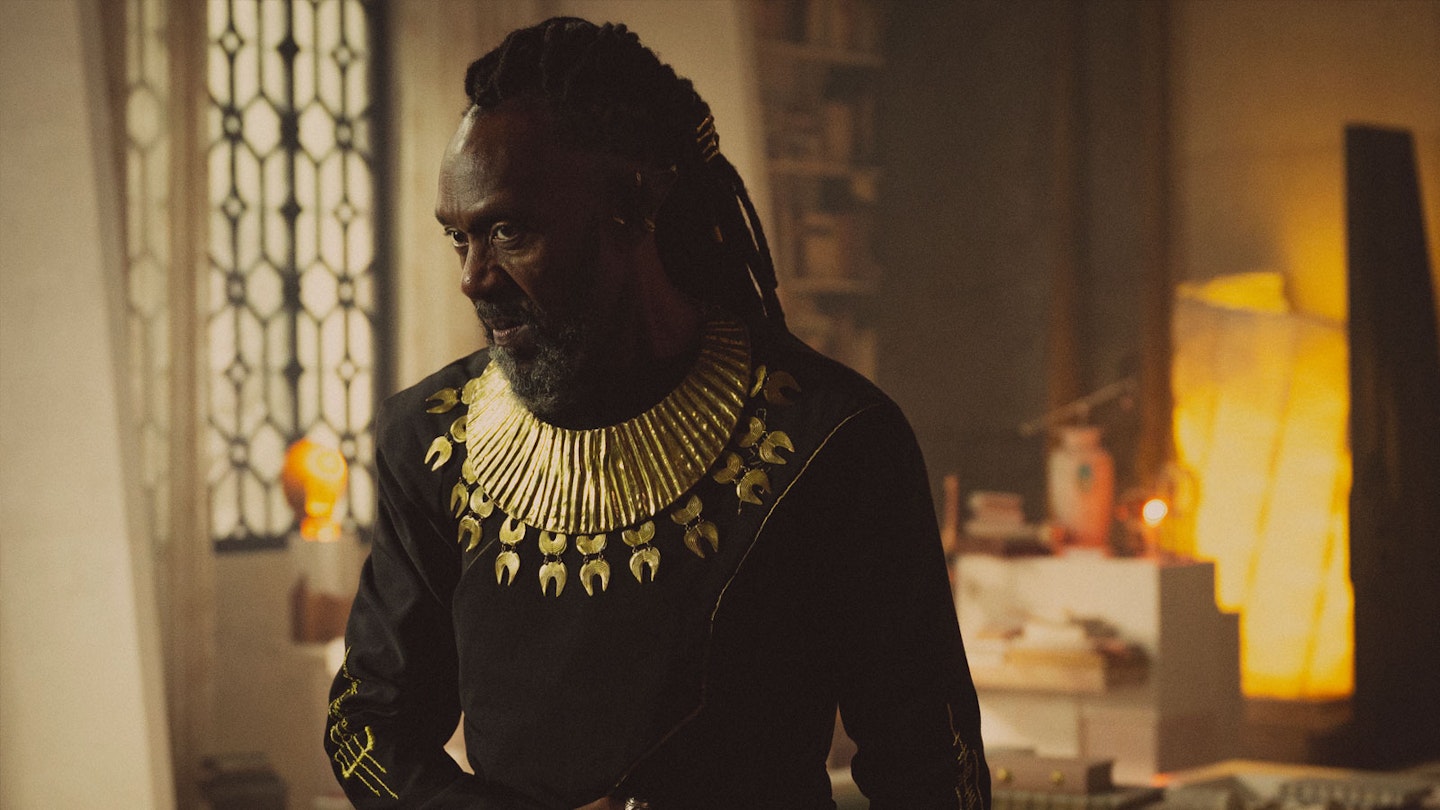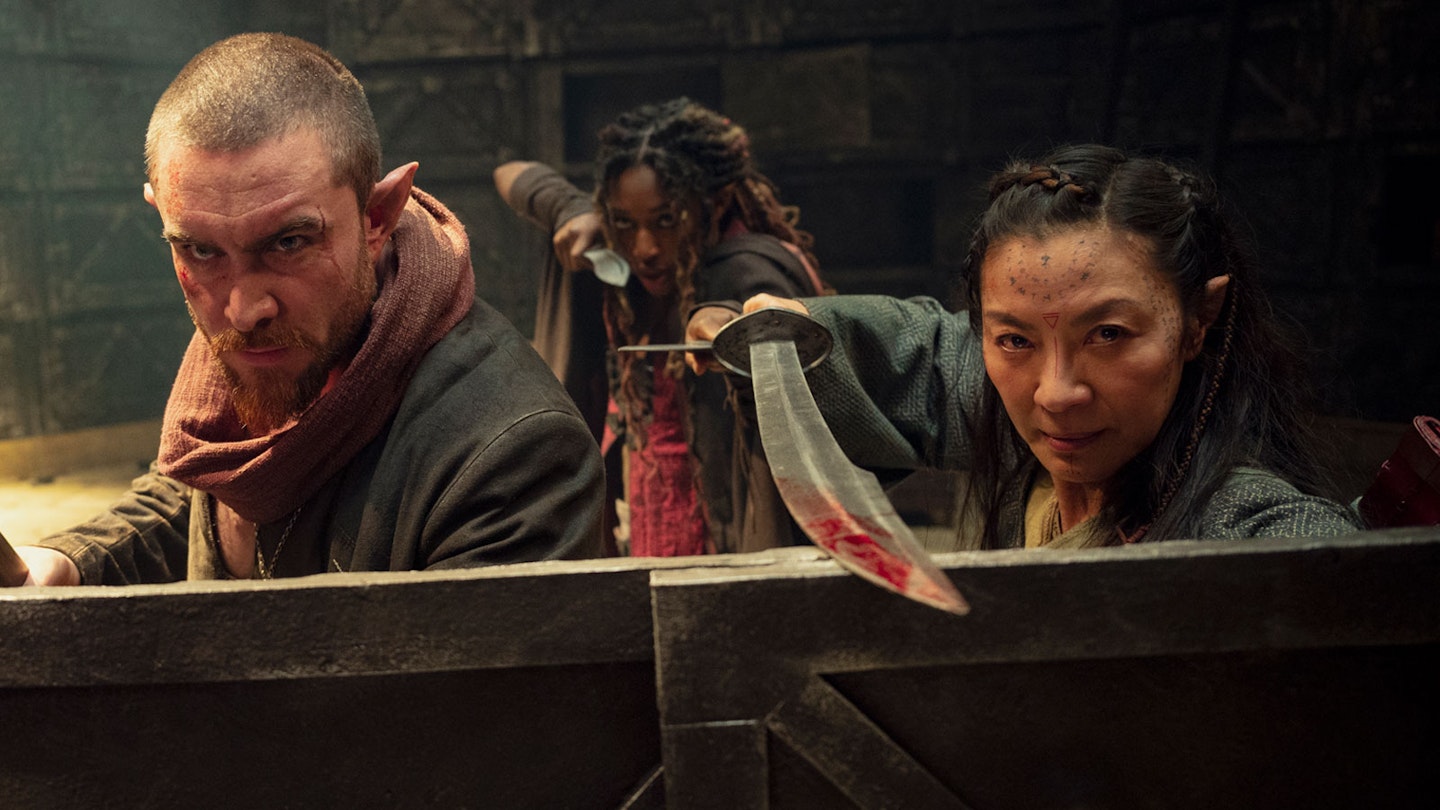Streaming on: Netflix
Episodes viewed: 4 of 4
If you’re a fan of The Witcher, it logically follows that you will also be a fan of Geralt of Rivia: the white-haired, yellow-eyed, bath-loving monster hunter played in the Netflix-streamed adaptation by Henry Cavill (well, for just one more season, but let’s not get into that now). Prequel spin-off series Blood Origin, then, represents a test of anyone’s Witcher fandom: is it possible to love The Witcher without your favourite Witcher ever appearing? On the evidence of this four-parter set 12 centuries before the events of the main show, the answer is, sadly: oh hell no.

It begins, as these things usually do, in an age of turmoil. Elfkind (get used to that word, it’s used a lot) is divided into three warring clans that have been at it for a very long time. However, their conflict is cursorily resolved with a bloody, magic-fuelled coup, via a big beastie (think an Independence Day alien crossed with a dragonfly) summoned by Lenny Henry as ambitious “low-born” wizard Balor, using one of those portal-opening monoliths we saw causing so much trouble in the last season of The Witcher. Within minutes, a power-hungry princess named Merwyn (Mirren Mack) is plonked on the throne and wittering on about a new “Golden Age of Elfkind” while giving literally everybody around her a reason to hate her.
It even somehow wastes Michelle Yeoh, who is given relatively little to do other than a few cool-but-brief swordfights.
Among those haters are a scrappy bunch of adventurers who over the next three episodes are unconvincingly united by retributive motives of varying degrees of clarity. Warrior-turned-bard Éile (Sophia Brown) and former palace guard Fjall (Laurence O’Fuarian), for example, know Merwyn is responsible for the deaths of one or more of their family members. Fairdos. But “Brother Death” (Huw Novelli) — who hardly kills anyone, ironically — just rocks up, shrugs and effectively says, “Can I play too?”, while hammer-wielding dwarf Meldof (Francesca Mills) somehow qualifies by letting them throw a party in her cave. (Meldof, by the way, is easily the best, most likeable character here, charmingly played by Mills, who deserves a ton more screentime.)
It all could have added up to a sword-and-sorcery Seven Samurai. Or even a Mage-nificent Seven. But with largely flat performances, tacky-looking VFX, even tackier-looking sets, and a risible script (“Let’s stop this bickering and change the future of Elfkind forever!”), it’s more like Battle Beyond The Stars meets Hawk The Slayer. It even somehow wastes Michelle Yeoh, who as Scian, last of the “Ghost Tribe”, is given relatively little to do other than a few cool-but-brief swordfights.
Very early on in Episode 1, during an overwrought framing scene featuring Geralt’s bard-bud Jaskier (Joey Batey) and Minnie Driver with pointy ears, Jaskier says, “This is gonna piss Geralt off.” Yep. And probably everyone who likes him, too.
